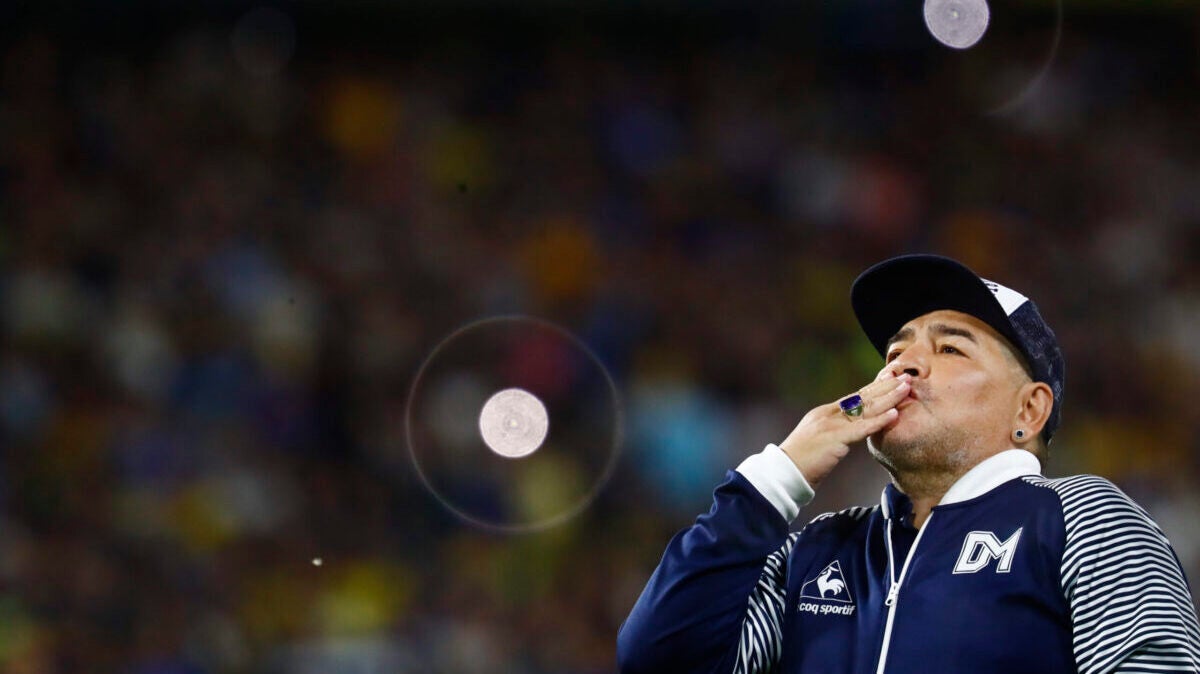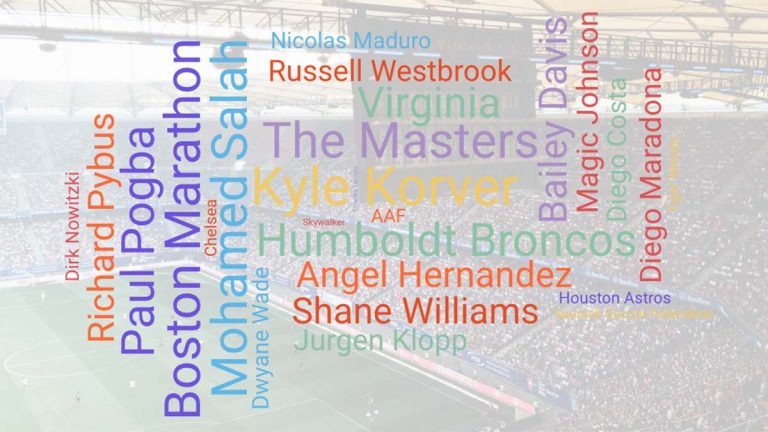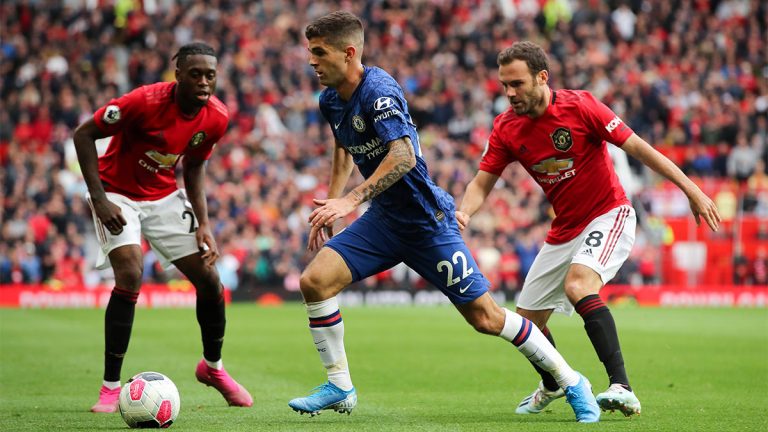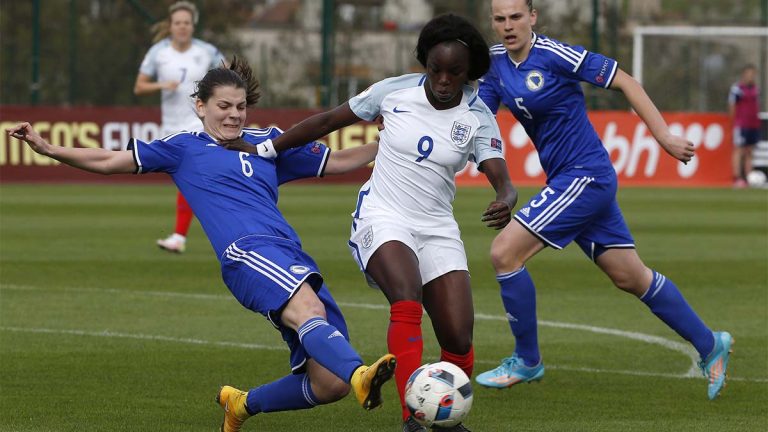Diego Maradona: The Life and Struggles of the “Cosmic Kite”
Why this matters
Widely regarded as one of the greatest players of all time, Diego Maradona was one of the two joint winners of the FIFA Player of the 20th Century award.
“Genius, Genius, Genius,Ta-Ta-Ta-Ta-Ta-Ta and GOOOOOOOOOOOOL…(…) Cosmic Kite, what planet do you came from?”
After running 60 yards and dribbling past five England players, the excitement of Uruguayan commentator Victor Hugo Morales showed the significance of what would be the second goal scored by Argentina’s Diego Armando Maradona against England in the 1986 World Cup quarterfinal. Morales later explained that the reason why he called Maradona the “Cosmic Kite” was because of how hard it was for the English men to handle him.
During that match, Diego Maradona also made the first goal, which he scored by using what would also gain its own notoriety and be called the “Hand of God.”
Those two goals meant more to the Argentine people than anyone could have imagined. The reason was far beyond what happened in the game. Four years before the iconic ‘86 game in Mexico, a war between Argentina and the United Kingdom had taken place over the sovereignty of the Falklands archipelago, located in Argentina’s coast in the South Atlantic Ocean. The war had ended with the Argentine personnel surrendering to England, and so Maradona’s goals were the best vindication for Argentina against England for the Falklands.
Maradona’s performance immediately made the little boy born and raised in Villa Fiorito – the slums of Buenos Aires – a national hero, whose relevance became more important than he ever imagined and set a standard too high to maintain even for himself, dragging him into addictions and mistakes that separated the player from the person he was outside a soccer stadium.
His personal life and childhood were troubled. He lived with his parents and four sisters in one of the most dangerous neighborhoods of the city, where there was no electricity or drinking water. Maradona grew up in poverty surrounded by alcohol and drugs, seeing his father struggle to maintain his household with a low income. These hardships also affected his adult life: The arrival of fame was too hard to handle for him, leading him to substance abuse and to lose the battle against drugs many times. The years of substance abuse divided the public opinion around Maradona’s figure leading them to criticize his behavior off the pitch and question his legacy as a role model for future generations.
In the 1984 Copa del Rey final between Athletic Club Bilbao and FC Barcelona, Maradona reacted against the tensions of the game, lashing out against Miguel Angel Sola, after which the Spanish Federation banned him for three months. In the summer of that year, Maradona moved to Naples to play for the Italian Serie A side Napoli for seven years. During this time, Maradona became a cultural symbol in the city, leading the team to win five titles, including two Serie A
Championships, one Coppa Italia, and one UEFA Cup. This success put Diego Armando Maradona at the same level as Naples’ local Saint, Sann Gennaro, earning the Argentine player a chapel with his name and numerous paintings of him spread across the city.
Maradona’s impact on Naples began when he chose to continue playing for the small team S.S.C Napoli instead of Italian giant, Juventus FC. Ever since Italy was unified in 1871, the Northerners had regarded the people from the south of Italy as poor and uneducated. The reason behind this prejudicial attitude is that most of the factories in Italy – and which dominate the financial landscape of the country – are located in the north. Among those factories is FIAT, owned by the Agnelli family who also owns Juventus FC. In his autobiography, Maradona recognized that the differences between northern and southern Italy gave him the chance to do what he liked best – to fight for a cause. However, his time in Naples was not all happiness: Maradona got involved with the mafia and continued his substance abuse, testing positive for traces of cocaine in 1991.
Thus began Maradona’s decline, with his behavior off the pitch which made people think fame had overwhelmed him. Fernando Signori, former fitness coach of the Argentine star, once said: “With Diego, I would go to the end of the world: with Maradona, I wouldn’t take a step.” With this phrase, Signori wanted to point out the difference between the person, his insecurities and the celebrity.
On the political side, Diego Maradona always sided with the Latin American left, standing against capitalism and openly supporting revolutionary leaders such as Che Guevara, and controversial authoritarian leaders such as late Fidel Castro, Venezuelan Hugo Chávez and his successor, Nicolás Maduro - categorized as communist dictators. Maradona met Castro in 1987 following Argentina’s success in the 1986 World Cup. After that, Castro invited Diego to recover from his substance abuse in Havana back in 2000.
Millions of Venezuelans still have in their memories Maradona’s 2017 visit when, amid student protests against the illegitimate national assembly and the violations of human rights by the Venezuelan regime, Maradona danced with Maduro while thousands of young people were killed by Maduro’s army while defending liberty and democracy. At that time, Maradona wrote on social media:
“When Maduro orders, I am dressed as a soldier for a free Venezuela, to fight against imperialism and those who want to take our flags, which is the most sacred thing we have.
“Long live the revolution!!!”
These comments and the player’s political opinions were as controversial as his entire life. That is the legacy of Diego Armando Maradona, a gifted footballer and troubled man who never wanted to be a role model but whose fate was to impact millions of people around the world on and off the pitch, transcending in a social, cultural, and political dimension. His importance to the world beyond soccer should not be canceled because of his mistakes.
On November 25, Maradona died at the age of 60 after suffering heart failure in his sleep which caused pulmonary edema. In the aftermath of his death, despite his controversial personality, the world cries for the loss of Maradona because, after all, it is the people who make “idols” of imperfect human beings and then expect them to live under that standard. As late author Roberto Fontanarrosa said and recently Spanish coach Pep Guardiola rephrased: “It doesn’t matter what you did with your life, but what you did with ours. It made many people happy”.





